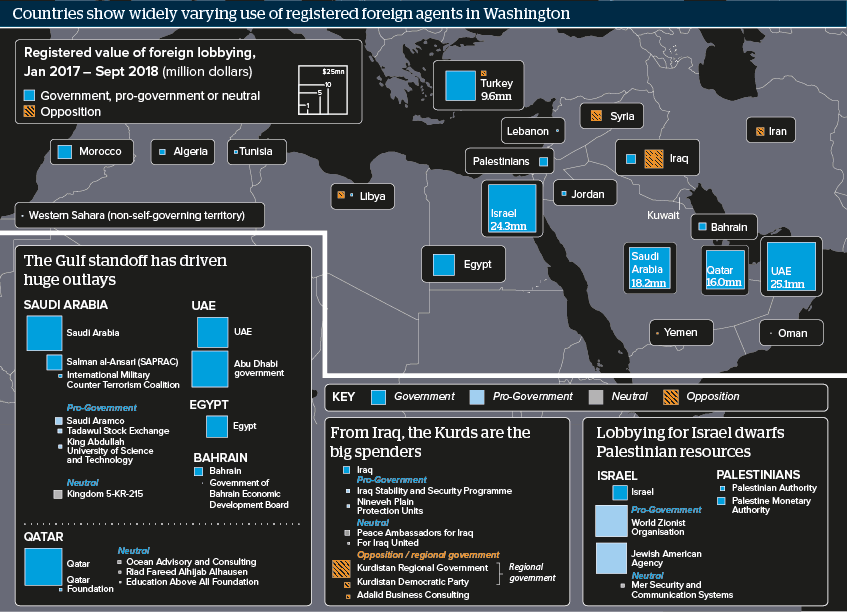Competitive Middle East Washington lobbying may spike
Regional actors have spent 111 million dollars on US influencing since 2017 -- over one-fifth of the global total
Source: Center for Responsive Politics
Outlook
Competition to influence the Trump administration could spike even further, as recent reports indicate past success (while underlining the risks of foreign lobbyists’ non-registration). With oil prices high, the Qatar and Iran crises ongoing, and Washington’s future involvement in the region looking uncertain, the richer Gulf states are likely to increase their investment.
Registered ‘foreign agent’ lobbying will be complemented by more indirect channels of influence, including use of think tanks, academic institutions and media manipulation. The intersection of wealthy Israeli and Saudi-Emirati interests will encourage the United States to keep up its economic pressure on unrepresented Iran.
Impacts
- Governments of countries facing active US hostility, such as Syria and Iran, will leave the field to opposition actors.
- Poor or conflict-ridden states, such as Jordan and Yemen, will have scant motivation to invest, relying on rich patrons to make their case.
- ‘Neutrals’ including Kuwait and Oman also face lower spending imperatives and will freeload until seeing an imminent danger from US apathy.
- Breakdowns suggest Turkish and Moroccan spending may aim to maximise economic openings as much as political influence.
See also
- Polarised Gulf media will obscure facts - Jul 2, 2018
- More graphic analysis
